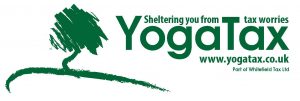Why Keep Records?
Keeping books and records – day to day bookkeeping – is a requirement for anyone running a business and, although rare, you can be penalised by HMRC for not doing so.
For tax you need to keep:
- A record of income as its received
- A record of expenses you incur
- Mileage logs
- Ins and outs on business bank account
For your own use you may also want to track:
- Prepaid lessons
- Trends in class numbers and attendance
- Profitability
For insurance and class management, you probably want to keep a log of attendance / a register of sorts – see Class Records
Bookkeeping for Tax
There are a number of options for keeping books:
- A diary
- An accounts book on paper
- A spreadsheet – we have one for you here (note Spreadsheets will need to be linked to HMRC post Making Tax Digital)
- A computer package like Freeagent, Quickbooks, Sage or Xero (but these may be too complex for many sole traders)
- Bespoke management package – mostly relevant to studios with booking systems – however by itself a booking system is unlikely to provide accurate bookkeeping functionality
- Feature Bank Accounts. Some banks are introducing accounting features, but its an evolving market – see our thoughts under Do I Need a Business Bank Account?
Making Tax Digital
The proposed Making Tax Digital regime will mandate the use of some sort of electronic accounting system in due course for most businesses – VAT Registered businesses from April 2019, Sole Traders and Partnerships under Self Assessment on a phased basis from April 2026.
We are recommending FreeAgent to clients as an accounting system for MTD compliance, but we are “open platform” so we will endeavour to work with whatever system you choose to use.
Spreadsheets will be possible post Making Tax Digital, but will need to connect to HMRC via Bridging Software.
Record Keeping – Common Problem Areas
- Ensure income is recorded as its received, including cash in class and direct payments to your bank account. We suggest recording prepaid lessons as a lump sum on receipt.
- Ensure income is not double counted, eg cash income recorded and double counted as a bank deposit
- If you use a personal bank account, you don’t need to record personal expenses, but if you use a business bank account you do, as drawings – in which case its easier and simpler to make transfers to your private account on a regular basis for living costs and record these in your accounts rather than put individual personal transactions through your business bank account and have to record each one
- Use a simple Referencing System for Receipts and Vouchers – you could just start from “1” and work upwards, and if you receive a receipt late it doesn’t matter if the numbering is out of order. Many Apps let you save receipts and attach them to transactions, and apps like Receipt Bank are also used by a lot of people.
- Make sure income and expense is marked as cash, debit card, cheque, credit card etc – it makes it easier to track where things have come from/gone to
- If you use an accounts book or spreadsheet you can summarise and use a fresh page/sheet each month or quarter if you wish, or just run on for the year – personal preference.
Prepaid lessons can cause confusion – here are our tips
- It is best to enter them as a lump sum on receipt in your accounts
- Don’t try and apportion them and record as they are used as it creates confusion and leads to the risk of errors
- Keep it simple!
- When it comes to your year end and preparing your Self Assessment or giving information to your accountant you then have a couple of choices:
- Make no adjustment for prepaid lessons – this is called cash accounting. It has the advantage of being simpler and more transparent, but it accelerates your tax on any classes paid in one tax year and taken in the next
- Total up the unused lessons and value them, eg pro rata of the block purchases, and deduct these from your income for Self Assessment – but remember to add them back on next year. A little more accurate, but complex and more scope for error. Unless the amounts are significant, its probably not worth doing this.
- See our guidance on Cash Accounting and Accruals Accounting
How Long Should You Keep Records For?
HMRC generally have four years after submission of your tax return to open enquiries – 1 year under general powers, and up to 4 years under discovery powers.
HMRCs own advice is to keep records for five years after the 31 January submission deadline of your tax return, eg:
- 2024-25 tax year
- Submission deadline 31 January 2026
- Retain to 31 January 2031
Records do not need to be kept in paper form, so if you hold everything electronically you could potentially keep your records indefinitely.


